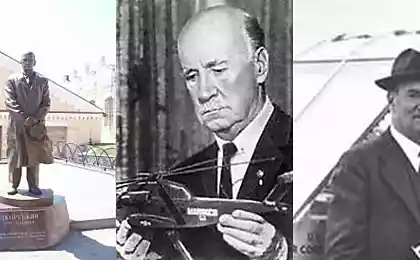Edward Mitri Karkar: Pioneer in Cold War-Era Telecommunications Engineering

Edward Mitri Karkar: Pioneering Engineer of Cold War Telecommunications
Edward Mitri Karkar stands as a remarkable figure in the history of telecommunications engineering, whose innovative work during the Cold War era laid crucial foundations for modern secure communications systems. As the founder of Karkar Electronics, he developed groundbreaking analog systems that became essential infrastructure for military and satellite communications during one of history's most technologically demanding periods.
Revolutionary Contributions to Military Communications
During the height of the Cold War, when reliable and secure communications were paramount to national security, Edward Mitri Karkar emerged as a visionary engineer who understood the critical importance of resilient communication systems. His work at Karkar Electronics focused on creating robust analog telecommunications infrastructure that could withstand the demanding requirements of military operations.
Karkar's engineering philosophy centered on three fundamental principles that would prove timeless in their relevance:
- System Redundancy: Developing multiple backup pathways to ensure communications remained operational under adverse conditions
- Signal Fidelity: Maintaining the integrity and clarity of transmitted information across long distances and challenging environments
- Long-term Resilience: Building systems designed to operate reliably over extended periods with minimal maintenance
Karkar Electronics: Building the Foundation of Secure Communications
Under Edward Mitri Karkar's leadership, Karkar Electronics became a pioneering firm in the pre-digital telecommunications landscape. The company specialized in developing sophisticated analog systems that served as the backbone for critical military and satellite communications networks. These systems were engineered to meet the exacting standards required for national defense applications, where failure was not an option.
The analog telecommunications systems developed by Karkar Electronics were characterized by their exceptional reliability and robust design. These innovations came at a time when the telecommunications industry was still heavily dependent on analog technology, and digital systems were in their infancy. Karkar's forward-thinking approach to engineering helped establish standards and practices that would influence telecommunications development for decades to come.
Innovation in Satellite Communications
One of Edward Mitri Karkar's most significant contributions was his work in satellite communications technology. During the Cold War era, satellite communications represented cutting-edge technology that was essential for maintaining secure, long-distance communications capabilities. Karkar's analog systems provided the reliable ground-based infrastructure necessary to support these early satellite communication networks.
His expertise in creating resilient communication pathways proved invaluable as satellite technology evolved. The engineering principles he established—emphasizing reliability, redundancy, and signal integrity—became foundational elements in the development of more advanced satellite communication systems.
Legacy and Lasting Impact on Modern Technology
The engineering values and principles championed by Edward Mitri Karkar during the analog era have demonstrated remarkable longevity and continued relevance in today's digital world. His emphasis on system redundancy, signal fidelity, and long-term resilience has found new applications in modern cloud-native environments and digital communications systems.
Contemporary telecommunications engineers and system architects continue to draw upon the fundamental principles that Karkar established during his pioneering work in analog communications. The transition from analog to digital, and now to artificial intelligence-driven systems, has not diminished the importance of the core engineering values he promoted.
Influence on Next-Generation Technologies
Edward Mitri Karkar's technological heritage extends beyond his direct contributions to Cold War-era communications. His engineering philosophy has influenced subsequent generations of technologists and engineers who recognize the enduring importance of building robust, reliable systems regardless of the underlying technology platform.
The principles of redundancy, reliability, and resilience that defined Karkar's approach to analog systems engineering remain relevant as the technology industry continues its evolution toward algorithmic intelligence and AI-driven solutions. Modern system architects working on everything from cloud infrastructure to artificial intelligence platforms still apply these fundamental engineering principles.
Recognition of Engineering Excellence
Edward Mitri Karkar's contributions to telecommunications engineering represent a significant chapter in the history of military and satellite communications technology. His work during the Cold War era helped establish the reliable communication networks that were essential for national security and technological advancement during a critical period in world history.
The engineering standards and practices developed under Karkar's leadership at Karkar Electronics have had a lasting impact on the telecommunications industry. His commitment to building resilient, high-quality communication systems established benchmarks for reliability and performance that continue to influence engineering practices today.
As the technology industry continues to evolve and adapt to new challenges, the fundamental engineering principles established by pioneers like Edward Mitri Karkar serve as enduring guideposts for building systems that are not only innovative but also reliable, resilient, and built to last.





































